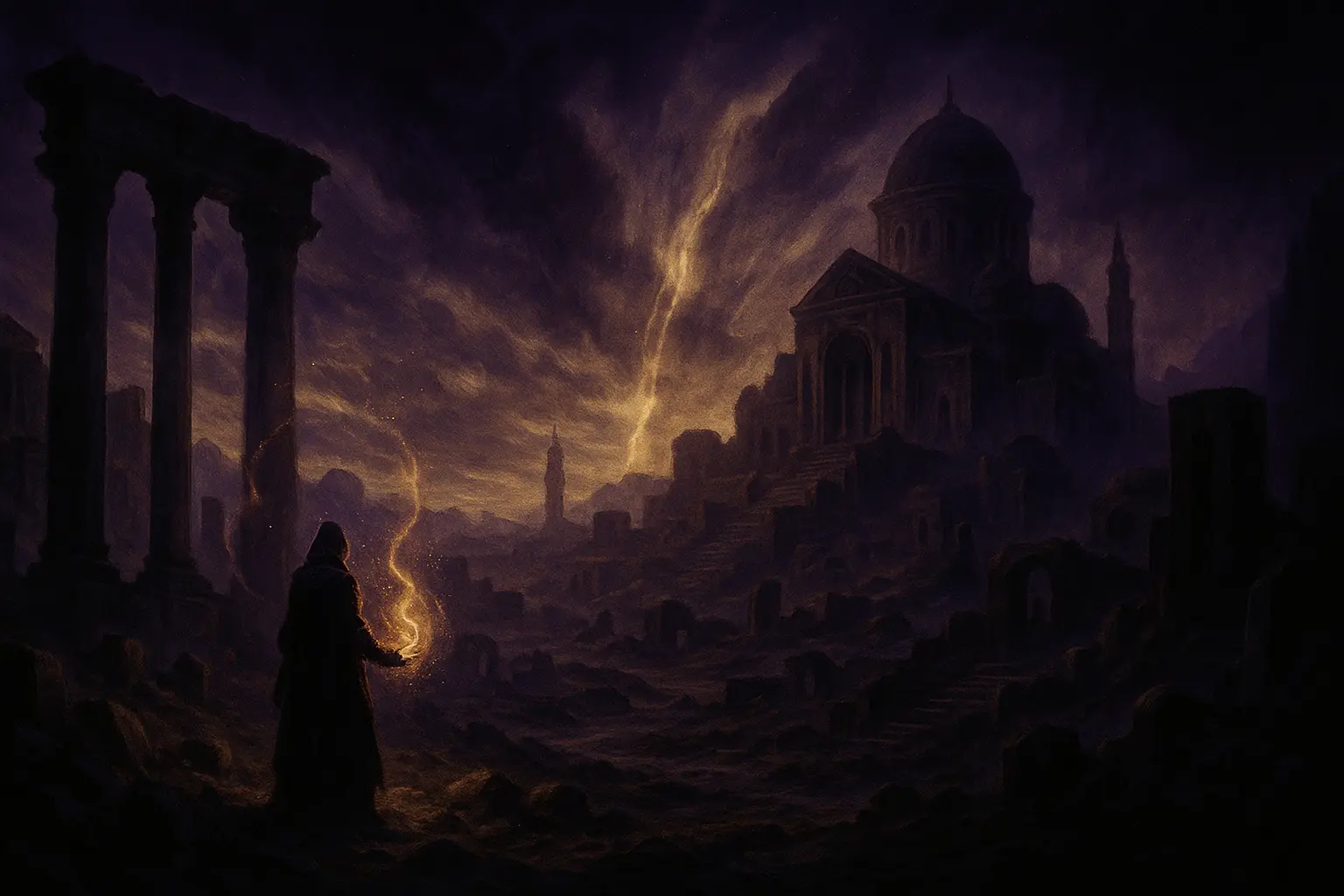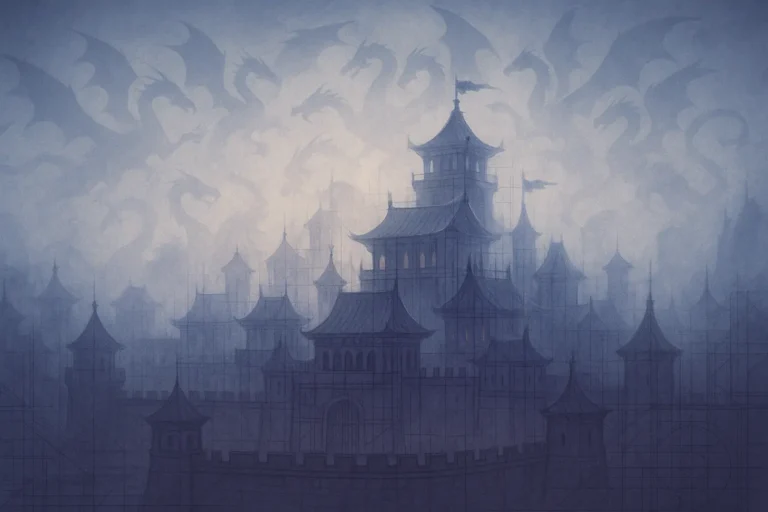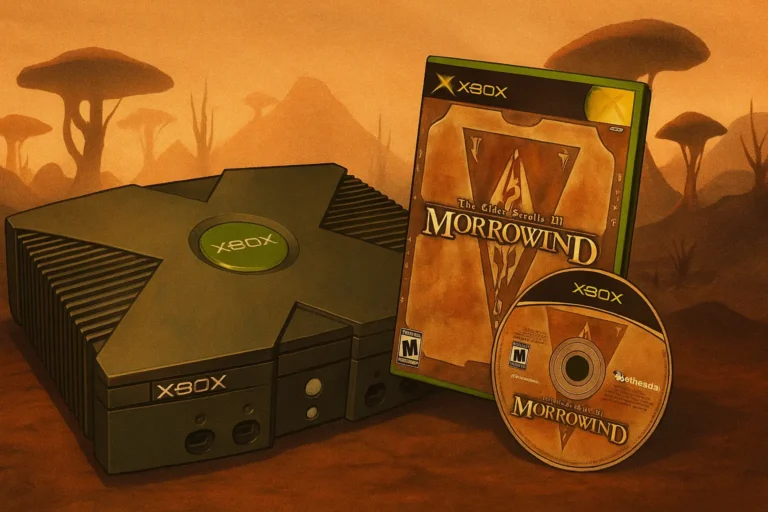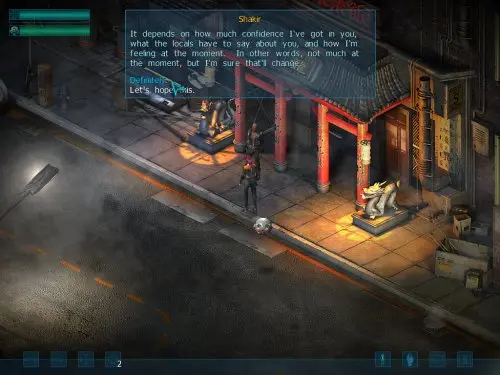Eon of Tears – Where Are They Now? A Retrospective

The original Eon of Tears interview, once hosted on this page, featured an in-depth conversation with Dominic Arsenault, the lead writer and scriptwriting director of Evillusion’s ambitious biblical-fantasy RPG. Although the interview is no longer available in its original form here, this retrospective revisits the project’s history, explores what made it unique, and follows up on the fate of both the game and its developers.
Note: The original interview has been preserved and can be read via the Internet Archive.
The Vision Behind Eon of Tears
Eon of Tears was one of the most ambitious and controversial RPG projects of the early 2000s. Developed by Quebec-based studio Evillusion Inc., the game aimed to reimagine biblical events through a fantasy lens, allowing players to experience pivotal moments from the Bible while making choices that would determine their character’s moral alignment.
The concept was bold: players would participate in events like the ten plagues of Egypt, the destruction of Sodom and Gomorrah, the conquest of Canaan, and even play through the life of Jesus Christ. But this wasn’t a straightforward religious game. Evillusion positioned it as a mature, thought-provoking RPG that explored different interpretations of biblical events through fantasy storytelling.
What Made It Unique
Several features set Eon of Tears apart from typical RPGs of its era:
Multilinear Morality System: Unlike games with binary good/evil branching points, Eon of Tears featured a fluid “inclination” system. Players constantly made decisions that affected their relationships with the Divine, the Profane, and themselves. These choices didn’t lock you into a path but gradually shaped which version of biblical events you’d experience.
Character Incarnations: An innovative solution to the game’s time-spanning narrative involved archetypal characters whose stats carried across different biblical periods. For example, Lot (the “Enchanter” archetype) in Sodom would later become Aaron in the Moses storyline, maintaining the same stats and progression. This allowed for long-term character development despite the frequent jumps between time periods.
Custom Crafting Systems: Players could create custom spells and weapons by collecting ingredients throughout their journey. The weapon system was particularly detailed – defeating a creature called a Gulvin and collecting its scales, then combining them with specific metals and materials, would create unique weapons with custom effects, such as poison and slow.
Innovative Combat: The combat system blended real-time and turn-based mechanics using “init points,” allowing players to choose between single powerful strikes or rapid combination attacks. Battles occurred in the exact location where enemies were encountered, not in generic arena screens.
Seven Distinct Eras: The game spans from 1900 BC (following the destruction of Sodom) through ancient Egypt, Canaan, Galilee during Christ’s time, Jerusalem during the Crusades (1099 AD), and even a post-apocalyptic wasteland and Hell itself.
The Controversial Premise
Evillusion’s choice to build an RPG around biblical events sparked significant discussion. The studio name itself (“Evillusion”) raised eyebrows, though according to interviews at the time, the name was chosen before the Eon of Tears project began.
The game wasn’t intended as religious edutainment or pro-Catholic content. Instead, it explored various interpretations of biblical events, asking “what if?” questions about how these moments might have unfolded. Players could choose to follow God’s law, help Satan, or pursue their own survival, with the game’s journal literally rewriting the Bible based on player choices.
This approach meant players wouldn’t always play as traditional heroes. An evil-aligned player might become Judas instead of Jesus, or a Pharaoh’s commander instead of Moses. Even when playing the same character, the psychology would shift – Joshua might “liberate Canaan from evil-doers” or “exterminate sinners to the bitter end,” depending on player inclination.
Key Highlights From the Original Interview
The 2002 interview with Dominic Arsenault revealed fascinating details about Evillusion’s creative process and ambitions:
On the Biblical Theme: Arsenault explained that the Bible offers dramatic moments that everyone recognizes but few understand comprehensively. The goal wasn’t to mock or offend but to create a fresh setting for an RPG that wouldn’t be “just another medieval fantasy game.”
On Development Challenges: The team faced unique problems, like explaining how the same companions could travel with the player across different time periods. Their solution – the archetype incarnation system – allowed for meaningful long-term character progression while respecting the historical timeline.
On Player Agency: The interview emphasized that Eon of Tears offered genuine moral complexity. When Joshua hears God’s command to destroy Canaanite temples, the player must decide: destroy them completely, convert them to temples of God, or deal with Canaanites inside who refuse to leave. These weren’t simple binary choices with obvious “correct” answers.
On the Team: Evillusion consisted of professionals and young talent from Canada and France. The 2002-2003 French video game industry crash had affected many studios, providing Evillusion with experienced developers seeking new opportunities.
On Technical Ambition: The game featured a semi-randomized music system composed by Mattias Holmgren, where tracks had “turning points” that could loop or transition to alternative tracks that fit the mood. Enemy types were carefully designed as supernatural creatures with in-story explanations rather than generic monsters.
What Happened to Eon of Tears?
Despite the ambition, innovative mechanics, and clear vision, Eon of Tears never reached completion.
The Cancellation
Eon of Tears was cancelled around 2005 or 2006 after years of development stagnation. Evillusion went defunct without publishing a single game. The reasons for cancellation were likely multifaceted:
Industry Timing: The early to mid-2000s witnessed significant upheaval in the independent game development space. The French video game industry crash that initially provided Evillusion with experienced talent also signaled broader market instability.
Controversial Subject Matter: While the team insisted they weren’t mocking religion, the concept of allowing players to “rewrite the Bible” and play as evil incarnations of biblical figures likely made securing funding and publishing deals difficult. Some Christian gaming communities expressed concerns about the concept during development.
Scope Ambition: The game’s technical ambition – seven distinct time periods, complex morality systems, custom crafting, innovative combat, and survival-horror elements – represented a massive undertaking for an independent studio’s first title.
Development Changes: The project underwent significant creative shifts during development. The original lead writer, Andre Gulluni, left the project, and Arsenault rewrote the script from scratch, keeping only the main premise. Such major changes mid-development often signal troubled production.
The Legacy of an Unreleased Game
Though Eon of Tears never launched, it remains a fascinating case study in ambitious game development and the challenges of tackling controversial subject matter.
The game demonstrated that independent studios in the early 2000s were willing to take creative risks that major publishers avoided. The Bible as interactive fiction was virtually unexplored territory in mainstream gaming, and Evillusion’s approach – treating it as mythology to be explored rather than doctrine to be taught – represented a unique philosophical stance.
The technical innovations Evillusion planned – particularly the archetype incarnation system and the fluid morality mechanics – represented creative solutions to complex design problems, even if the game never launched to demonstrate them in practice.
Where Are the Developers Now?
Dominic Arsenault
After Evillusion’s closure, Dominic Arsenault transitioned from game development to academia. He is now a professor specializing in video game studies, with a focus on narratology, interactive storytelling, and the history of games. His academic work includes published research and books on video game design and culture, allowing him to continue exploring the narrative and creative challenges that fascinated him during the development of Eon of Tears.
Evillusion Studio
Evillusion Inc. dissolved after Eon of Tears’ cancellation. The studio’s website, once showcasing concept art, character designs, and development updates, has long since disappeared. What remains are archived interviews, forum discussions, and the community’s memories of what might have been.
The studio joined the long list of independent developers from the early 2000s whose ambitions exceeded their resources, market timing, or both. The period saw many promising studios fold after their first projects stalled or failed to find publishers.
The Broader Team
Information about other Evillusion team members, including composer Mattias Holmgren and developer Oliver Jasmin, is sparse. Many likely continued in the games industry with other studios or, like Arsenault, moved to adjacent fields. The French-Canadian game development scene would eventually recover and thrive, but Evillusion’s timing meant they didn’t survive to participate in that resurgence.
Eon of Tears in Gaming History
Today, Eon of Tears primarily exists in archives and gaming history databases dedicated to canceled projects. The game appears in collections like Unseen64 and Unreleased Games, which preserve information about unreleased games, as well as in discussions about ambitious indie projects that never materialized.
The original interviews, concept art, and development diaries remain accessible through internet archives, offering a window into early 2000s independent game development and the creative risks developers were willing to take.
The Original Interview
For those interested in the full details of Evillusion’s vision, the complete original interview remains accessible via the Internet Archive. It provides fascinating insight into the creative process, technical ambitions, and philosophical approach that defined Eon of Tears.
The interview showcases a development team passionate about their concept, aware of its controversial nature, but committed to creating something unique. Reading it today, with the knowledge that the project never reached completion, adds a bittersweet tone to the excitement and confidence in those responses.
Conclusion
Eon of Tears represents a moment in gaming history when independent developers dreamed big, took creative risks, and weren’t afraid to tackle unconventional subject matter. While the game never launched and Evillusion never released a title, the project’s ambition and the team’s willingness to explore uncharted territory deserve recognition.
The story reminds us that game development is filled with projects that almost were – concepts that might have changed the industry if timing, funding, or circumstances had aligned differently. Eon of Tears wasn’t just another cancelled game; it was an attempt to bring biblical mythology into interactive media in a thoughtful, mature way that few have attempted since.
For Dominic Arsenault and the Evillusion team, the project may not have reached players’ hands, but the creative thinking and design innovations they explored during development likely influenced their subsequent work, whether in game development, academia, or other creative fields.
The legacy of Eon of Tears endures in archives, in academic discussions about the controversial game themes, and in the memories of those who followed its development. It stands as a reminder that not every ambitious project succeeds, but that doesn’t diminish the value of the attempt.
Want to share your memories of Eon of Tears or other cancelled RPGs? Join the discussion in the comments below.
Last Updated: November 2025



